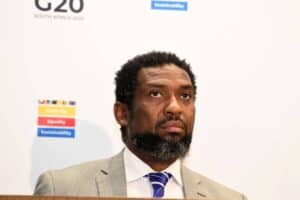'We need to coordinate those that exist already in a better way, so they can function better without reinventing the wheel.'

President Cyril Ramaphosa’s plan of action will need “everyone to do their bit” as new measures to combat corruption begin.
These include the appointment of boards of state-owned entities (SOEs) by independent panels and rules banning board members and ministers from playing any part in procurement.
Political analyst and University of South Africa professor Dirk Kotzé said the commission’s recommendations were based on evidence and some common problems were around procurement and contracts.
“Whether it was in the case of Eskom, State Security Agency (SSA) or the Passenger Rail Agency of South Africa (Prasa), there were certain problems which were Cabinet problems,” he said.
Legislative amendments to be introduced
Ramaphosa said to further strengthen anticorruption capabilities, the Investigating Directorate will be established as a permanent entity within the National Prosecuting Authority.
And to address concerns with respect to the independence of the NPA, legislative amendments will be introduced to introduce greater transparency.
Kotzé said there was a whole host of institutions which deal with corruption and anticorruption and noted that Ramaphosa said he would not implement the recommendations as they were.
“Institutions include the public protector, the auditor-general, the inspector-general of intelligence, special investigating units and the police,” he said.
“Ramaphosa is saying it would be determined to what extent these institutions could be integrated so it does not create just another new council, because there would be duplication of work that already has been done.
“We need to coordinate those that exist already in a better way, so they can function better without reinventing the wheel.”
ALSO READ: Opposition slam Ramaphosa’s ’empty promises’ on state capture-implicated ministers
Kotzé said Ramaphosa had noted government was willing to do what was needed.
Despite the backlash following Ramaphosa’s response, Kotzé said the recommendations were value judgments and everyone could have their own opinion on that.
“The evidence which was received shows who was involved and what are the procedures being followed and on the basis of that those were recommendations.”
‘Recommendations not binding’
Of the commission’s 358 recommendations, Ramaphosa said 202 were for criminal and other prosecutions, 27 for recovery of assets, 15 to other state bodies for disciplinary proceedings and 11 to professional regulatory bodies for further investigation.
Five recommendations proposed constitutional change, 26 legislative changes and 64 required operational or regulatory changes.
“The president said it himself: the recommendations are not binding, meaning he will pick and choose recommendations he will implement,” said Kotzé.
ALSO READ: ANC ‘elders” attack on Ramaphosa doesn’t sit right, but they’re not all wrong
In his response, Ramaphosa stressed much more needs to be done to prevent a future occurrence of state capture.
Since state capture exposed the vulnerabilities in SA’s anticorruption architecture and law enforcement, the commission made a detailed recommendation about the establishment of an independent public procurement anticorruption agency comprised of an inspectorate, a litigation unit, a tribunal and a court.
The commission also recommended a permanent anticorruption commission with oversight over parliament and the executive.
Support Local Journalism
Add The Citizen as a Preferred Source on Google and follow us on Google News to see more of our trusted reporting in Google News and Top Stories.






